 Michael J. Sofia, Ph.D.
Michael J. Sofia, Ph.D.
Michael J. Sofia, Ph.D. received his BA in chemistry with honors from Cornell University in 1980. He went onto receive his Ph.D. in organic chemistry at the University of Illinois Urbana-Champaign in 1984 working for Prof. John Katzenellenbogen where he was an NIH Trainee. His thesis work focused on the design, synthesis and study of mechanism based inhibitors of serine proteases. At the University of Illinois, he received the R.C. Fuson Memorial Award for Superior Performance in Graduate Research. In 1984 he joined the laboratory of Prof. Gilbert Stork at Columbia University as an NIH Postdoctoral Fellow and worked on radical cyclization chemistry and vitamin D total synthesis.
Dr. Sofia began his industrial career in 1986 at E.R. Squibb & Sons where he developed inhibitors of squalene synthetase and HMG-CoA reductase for the treatment of atherosclerosis. His work lead to the identification of the first potent substrate-based inhibitor of squalene synthetase.
In 1989 Dr. Sofia joined Eli Lilly & Company as a Research Scientist. He spearheaded work in the area of leukotriene B4 receptor antagonists for the treatment of inflammation associated with asthma and delivered the clinical candidate LY293111 which progressed to phase II clinical trials. For this effort he was awarded the Lilly Discovery Team Award in 1991. Dr. Sofia also led the PLA2 discovery project team during his tenure at Lilly.
In 1993 Dr. Sofia took his first leap into biotech when he joined Transcell Technologies as the founding Director of Chemistry. He eventually was promoted to Vice President of Research. At Transcell Dr. Sofia pioneered the development of carbohydrate-based technologies for combinatorial chemistry and anti-infective drug discovery. This work led to the development of the first library of a complex anti-infective oligosaccharide and the use of monosaccharides as chemical diversity templates.
Subsequently in 1999, Dr. Sofia joined Bristol-Myers Squibb where he became Group Director of New Leads Chemistry. At BMS, Dr. Sofia built a lead discovery chemistry organization and global research capability that supported all research programs and that led to a dramatic improvement in the identification of new chemical matter to initiate lead optimization programs.
Dr. Sofia left BMS in 2005 to join Pharmasset, Inc. as Vice President of Chemistry and was later promoted to Senior Vice President of Chemistry. There he built the companies capability and programs around novel antiviral agents. His work led to multiple clinical candidates including a number of agents targeting the hepatitis C virus (HCV). His work on HCV resulted in the development of the HCV NS5B polymerase inhibitor, sofosbuvir that utilized a novel liver-targeted prodrug strategy. In 2013 sofosbuvir became the first interferon-free HCV cure therapy approved by both the US FDA and the European EMEA and was marketed as Sovaldi®. It quickly became the most successful drug launched in history and was designated by the World Health Organization as an essential medicine. It soon became the backbone of HCV-cure combination therapies and is part of the fixed-dose combination regimens Harvoni®, and Epclusa® and is used in combination with many other HCV targeted agents. Today over 1.2 million individuals have been cured of HCV using sofosbuvir-based therapeutic regimens.
With the acquisition of Pharmasset by Gilead Sciences in 2012, Dr. Sofia remained with Gilead for a period of time as Sr. V.P. of Chemistry but soon founded OnCore Biopharma to search for a cure for hepatitis B (HBV). OnCore Biopharma became Arbutus Biopharma, Inc. where Dr. Sofia is currently the Chief Scientific Officer and leads the discovery research and preclinical development efforts in search of an HBV cure.
Dr. Sofia has authored over 100 publications, 12 book chapters and numerous abstracts and is an inventor on more than 53 US patents and numerous patent applications. He has been an invited speaker at over 75 national and international conferences and universities. Dr. Sofia sits on several non-profit and for profit advisory boards and is a member of the Board of Trustees for the University of the Sciences, Philadelphia PA. He is also on the advisory boards of Chemical & Engineering News, ACS Medicinal Chemistry Letters, and ChemMedChem
For his work in drug discovery, Dr. Sofia is the recipient of numerous awards. These include the 2014 Pennsylvania Bio Scientific Achievement Award, the 2015 Heroes of Chemistry Award of the American Chemical Society, Foreign Policy Magazine’s 2014 Global Thinkers Award, the Economist Magazine’s 2015 Innovation Award in Biosciences, the 2016 IUPAC-Richter Prize in Medicinal Chemistry, the 2016 Lasker-Debakey Award in Clinical Medical Research, the Gertrude Elion Award from the International Society for Antiviral Research and the 2017 University of Illinois LAS Alumni Achievement Award. He was inducted into the ACS
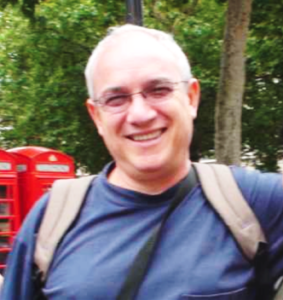 Marco Aurélio Martins studied Biological Sciences at University of Brasilia and Federal University of Ceará where he graduated in 1981. He did his PhD research on the role of platelet activating factor in allergic inflammation and obtained his PhD degree from the Fiocruz in 1991. As postdoctoral fellow at the William Harvey Research Institute and Imperial College in London, he was involved in studies concerning the role of annexin-1 and eotaxin-1 in the modulation of allergen-induced lung inflammation in animal models of asthma. He was appointed as assistant professor of pharmacology at the University of Rio de Janeiro State in 1985, and assistant researcher and senior researcher at the Physiology and Pharmacodynamics Department of the Oswaldo Cruz Foundation in 1987 and 1993, respectively. MAM is 1A CNPq Researcher and serves as head of the Laboratory of Inflammation at Fiocruz since 1991. He is currently involved in biomedical research on drug discovery and development at pre-clinical level, with specific emphasis on new putative treatments for lung inflammatory diseases. MAM is Pharmacology Section Editor of the Brazilian Journal of Medical and Biological Research and Frontiers in Pharmacology. He has published more than 180 papers and has supervised more than 30 post-graduate students.
Marco Aurélio Martins studied Biological Sciences at University of Brasilia and Federal University of Ceará where he graduated in 1981. He did his PhD research on the role of platelet activating factor in allergic inflammation and obtained his PhD degree from the Fiocruz in 1991. As postdoctoral fellow at the William Harvey Research Institute and Imperial College in London, he was involved in studies concerning the role of annexin-1 and eotaxin-1 in the modulation of allergen-induced lung inflammation in animal models of asthma. He was appointed as assistant professor of pharmacology at the University of Rio de Janeiro State in 1985, and assistant researcher and senior researcher at the Physiology and Pharmacodynamics Department of the Oswaldo Cruz Foundation in 1987 and 1993, respectively. MAM is 1A CNPq Researcher and serves as head of the Laboratory of Inflammation at Fiocruz since 1991. He is currently involved in biomedical research on drug discovery and development at pre-clinical level, with specific emphasis on new putative treatments for lung inflammatory diseases. MAM is Pharmacology Section Editor of the Brazilian Journal of Medical and Biological Research and Frontiers in Pharmacology. He has published more than 180 papers and has supervised more than 30 post-graduate students.
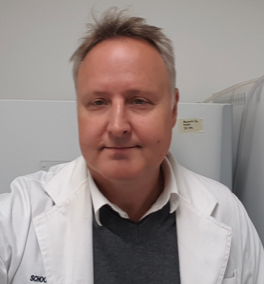 Dr. Scott Smid, The University of Adelaide, Australia
Dr. Scott Smid, The University of Adelaide, Australia
Dr. Scott Smid is a pharmacologist specializing in drug discovery and development research both in the pharmaceutical industry and academia. He maintains a strong research interest in experimental therapeutics applied towards novel treatments for gastrointestinal and neurodegenerative diseases. This includes investigating the biological actions of phytocannabinoids, synthetic cannabinoids and endocannabinoids in areas as diverse as gut function, inflammation and neurodegeneration. He has received US and Australian-based funding to investigate the potential of cannabinoids as novel treatments for inflammation and dementia and acts as a scientific advisor and invited speaker to stakeholders in industry, government and public advocacy in Australia on the science behind medicinal cannabis.
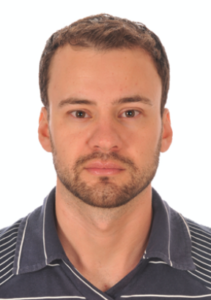 Prof. Jean Leandro dos Santos
Prof. Jean Leandro dos Santos
Dr. Jean is Associate Professor in the São Paulo State University (UNESP), School of Pharmaceutical Science, campus Araraquara. He obtained his bachelor at Pharmacy (2004), Master (2007) and PhD (2009) in Pharmaceutical Science. Post-doctorate in Pharmaceutical and Medicinal Chemistry from the University of Minnesota, United States (2016). Prof Dos Santos has a CNPq productivity scholarship in Technological Development and Innovative Extension level 2. He is the coordinator of lab of Medicinal Chemistry (Lapdesf). He has more than one hundred papers published and around 20 patents deposited and/or granted, some of the as a result of collaborative research with national and multinational pharmaceutical companies. He is an advisor at the master and doctoral level in the Graduate Programs of Excellence (Graduate Program in Chemistry, Chemistry Institute, UNESP, – CAPES 7 and Graduate Program in Pharmaceutical Sciences, School of Pharmaceutical Science, UNESP, – CAPES 6). His research interests are focusing on Sickle Cell Disease, tuberculosis and HIV.
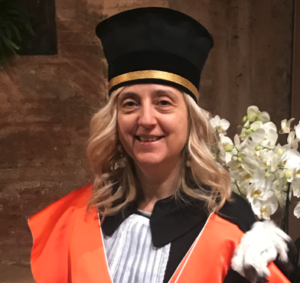 MARIA LAURA BOLOGNES completed a Master degree in Pharmaceutical Chemistry and Technology from the Alma Mater – University of Bologna in 1990, and in Pharmacy in 1992. In 1991 she joined Sigma Tau Pharmaceutical Industries, Rome, as a Research Scientist. In 1996, she earned a PhD in Pharmaceutical Sciences from the University of Bologna under the mentorship of Prof. Carlo Melchiorre. After postdoctoral studies at University of Minnesota in Prof. Philip Portoghese’s lab, she returned to the University of Bologna, where she is currently Full Professor of Medicinal Chemistry, Coordinator of Biotechnological, Biocomputational, Pharmaceutical and Pharmacological Sciences PhD Programme, and Rector Delegate for Latin America International Relations. She was selected as a Distinguished Visiting Professor at Universidad Complutense de Madrid in 2009 and Professeur invitée at the Université de Caen Normandie in 2018. For the 2014-2017 period, Maria Laura was awarded a Special Visiting Researcher scholarship by the Brazilian government through Brazil’s Science without Borders program. She is currently an Associate Editor of Journal of Medicinal Chemistry and sits on the editorial committees of several medicinal chemistry journals, such as ChemMedChem, Chemical Biology and Drug design, Future Medicinal Chemistry, Current Topics in Medicinal Chemistry. Maria Laura also serves on the Advisory board of the European Federation of Medicinal Chemistry. Her research spans the design, synthesis and pharmacological investigation of small molecules in the neurodegenerative and neglected tropical disease therapeutic areas, with a special focus on multi-target-directed ligands.
MARIA LAURA BOLOGNES completed a Master degree in Pharmaceutical Chemistry and Technology from the Alma Mater – University of Bologna in 1990, and in Pharmacy in 1992. In 1991 she joined Sigma Tau Pharmaceutical Industries, Rome, as a Research Scientist. In 1996, she earned a PhD in Pharmaceutical Sciences from the University of Bologna under the mentorship of Prof. Carlo Melchiorre. After postdoctoral studies at University of Minnesota in Prof. Philip Portoghese’s lab, she returned to the University of Bologna, where she is currently Full Professor of Medicinal Chemistry, Coordinator of Biotechnological, Biocomputational, Pharmaceutical and Pharmacological Sciences PhD Programme, and Rector Delegate for Latin America International Relations. She was selected as a Distinguished Visiting Professor at Universidad Complutense de Madrid in 2009 and Professeur invitée at the Université de Caen Normandie in 2018. For the 2014-2017 period, Maria Laura was awarded a Special Visiting Researcher scholarship by the Brazilian government through Brazil’s Science without Borders program. She is currently an Associate Editor of Journal of Medicinal Chemistry and sits on the editorial committees of several medicinal chemistry journals, such as ChemMedChem, Chemical Biology and Drug design, Future Medicinal Chemistry, Current Topics in Medicinal Chemistry. Maria Laura also serves on the Advisory board of the European Federation of Medicinal Chemistry. Her research spans the design, synthesis and pharmacological investigation of small molecules in the neurodegenerative and neglected tropical disease therapeutic areas, with a special focus on multi-target-directed ligands.
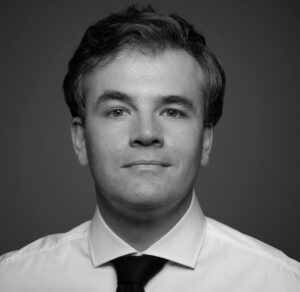 Frederico Garcia
Frederico Garcia
Professor at the Mental Health Department of the Federal University of Minas Gerais
Leader of the Research Center on Vulnerability and Health
Psychiatrist and Ph.D. in Molecular Medicine by the University of Rouen
Title: Progress in the anti-cocaine vaccine: a Brazilian venture
Abstract:
Anti-cocaine vaccines are promising treatments for cocaine abuse disorders as they induce the production of antic-cocaine antibodies. These antibodies decrease or preclude cocaine passage through the blood-brain barrier and reduce the reinforcing effect of the drug in the reward system. This effect may favor abstinence in the long term as cocaine users do not feel the pleasant and reinforcing effects of the drug. Our research group works on an innovative anti-cocaine vaccine. It uses calixarenes as the immunogenic pharmaceutic active. We will present our results regarding pre-clinical essays on the efficacy and security of this new anti-cocaine vaccine.
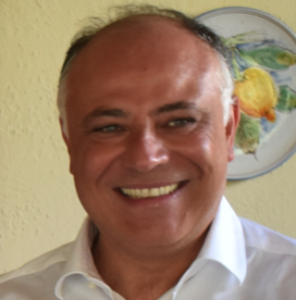 Dr. Stefano Alcaro
Dr. Stefano Alcaro
Università Magna Græcia of Catanzaro, Italy
Stefano Alcaro obtained his doctoral degree in Pharmacology, Pharmacognosy and Toxicology at the Università La Sapienza di Roma. After his PhD he continued with a postdoctoral fellowship in the laboratory of Computational Chemistry of the Department of Chemistry at the Columbia University, New York (Prof. W. Clark Still team). On 1996 he has reached his first permanent position as Medicinal Chemistry researcher at the Faculty of Pharmacy at the Università Magna Græcia of Catanzaro. From 2002 to 2011 he was promoted to Associate Professor in the same scientific sector and University. From 2011 he is Full Professor in the same academic institution. His main teaching courses at the Università Magna Græcia of Catanzaro are related to Medicinal Chemistry for Pharmacy and PhD students. He is currently the delegate for the Internationalization affairs and the Coordinator of the Life Science PhD course at the Università Magna Græcia of Catanzaro. He also coordinates the Paul Ehrlich Euro-PhD network, currently involving 65 Universities. Prof. Alcaro is co-author of about 240 original publications on peer reviewed international journals, 4 books chapters, 2 internationally diffused volumes and over 200 national and international communications. His research interests are related to drug design and hit identification of bioactive compounds by means of computational methods especially in the fields of anticancer and antiviral therapies. Recently he is involved in the discovery of novel nutraceutical agents by innovative approaches.
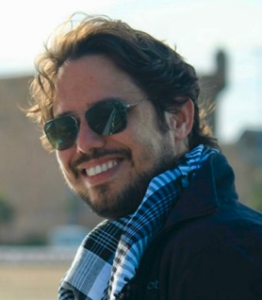 Dr. Hugo Verli, Federal Univ. of Rio Grande do Sul, Brazil
Dr. Hugo Verli, Federal Univ. of Rio Grande do Sul, Brazil
Prof. Verli has a Pharmacy Degree (UFRJ, 2001), with a Master Degree in Organic Chemistry (UFRJ, 2002) and a PhD in Cell and Molecular Biology (UFRGS, 2005). He was an affiliate member from the Brazilian Academy of Sciences (2012-2016) and currently he is an Associate Professor of Bioinformatics at UFRGS, and the Head of the Graduate Program in Cell and Molecular Biology (PPGBCM), located in the Center for Biotechnology at UFRGS. His expertise lies on Structural Bioinformatics, particularly on the simulation of molecular flexibility and its relation to biological phenomena, physiology, pathology and therapeutics, both from ligand and biomacromolecules perspectives. Prof. Verli also works on the development of new force field parameters to accurately reproduce the conformational behavior of molecules.
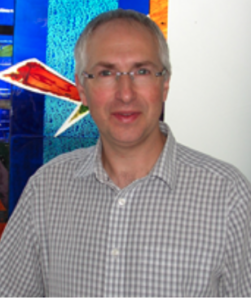 Dr. Ian Gilbert, University of Dundee, Scotland
Dr. Ian Gilbert, University of Dundee, Scotland
Prof. Gilbert obtained his PhD in synthetic chemistry, working with Andrew Holmes at the University of Cambridge. He then was a post-doctoral fellow with Parke-Davis Research, before spending a year teaching chemistry at the University of Zambia. On returning to the UK, he undertook post-doctoral work at the University of Cambridge in the area of chemical biology, before establishing his own independent medicinal chemistry research group at the Welsh School of Pharmacy in Cardiff University. The focus of his research was drug discovery for neglected tropical diseases. In 2005, he moved to a chair at the College of Life Sciences, University of Dundee. There, he helped to establish the Drug Discovery Unit, where he is currently head of chemistry.
 Dr. Maria Emília da Silva Pereira de Sousa
Dr. Maria Emília da Silva Pereira de Sousa
She is researcher at the Research Center CIIMAR and Assistant Professor with Habilitation of Organic and Medicinal Chemistry of the Faculty of Pharmacy of the University of Porto. Currently, she is the Director of the Therapeutic Chemistry Division of SPQ, the Chemistry Society of Portugal and the Director of the Master in Pharmaceutical Chemistry of the Faculty of Pharmacy of the University of Porto. She is Editor in Chief of the Medicinal Chemistry section of Pharmaceuticals; Associate Editor of Pharmaceuticals (MDPI) and Member of the editorial board of several journals in the area of Medicinal Chemistry. Her area of scientific activity is centered on Medicinal and Pharmaceutical Chemistry in particular, in the structure-based design and synthesis of potential drug candidates based on plant and marine natural product leads such as xanthones, fiscalins and other O- and N-heterocycles, in studies of structure-activity relationships and preclinical/preformulation studies. She is the author of 4 Portuguese and 2 International Patent Applications in the area of drug discovery and development of bioactive compounds.
List of Published Work: https://orcid.org/0000-0002-5397-4672
https://www.scopus.com/authid/detail.uri?authorId=7004889524
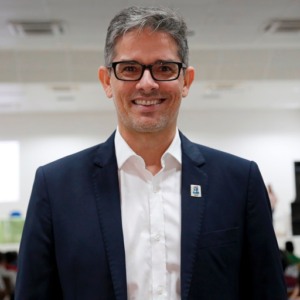 Prof. Lucindo J. Quintans-Júnior, Federal University of Sergipe, Sergipe, Brazil
Prof. Lucindo J. Quintans-Júnior, Federal University of Sergipe, Sergipe, Brazil
Graduated in PHARMACY by the Federal University of Paraíba – UFPB (Brazil), Master and PhD (2000-2004) in Natural Products and Bioactive Compounds by UFPB (Brazil). Post-doctorate in NEUROSCIENCE at the University of Iowa (UIOWA, USA). Full Professor in the Department of Physiology at the Federal University of Sergipe (DFS/UFS), Brazil. Professor of Postgraduate Programs in PHARMACEUTICAL SCIENCES and in HEALTH SCIENCES. Member of the Brazilian Association of Pharmaceutical Sciences (ABCF), Brazilian Society of Pharmacognosy (SBF), of the Brazilian Society of Neuroscience and Behavior (SBNeC), The American Society of Pharmacognosy (ASP) and the American Society for Pharmacology and Experimental Therapeutics (ASPET). Member of FB2NP – Franco-Brazilian network on Natural Products. It currently has about 410 articles published, has supervised 27 masters and 22 PhD students. Its bibliometric indicators are h-index 43 and 6647 citations (Scopus) and h-index 42 and 6384 citations (Publons).
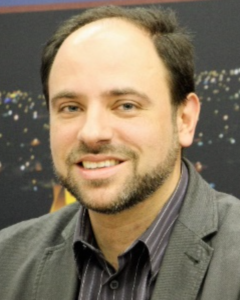 Prof. Rafael V. C. Guido
Prof. Rafael V. C. Guido
University of São Paulo, São Paulo, Brazil
Associate Professor at the São Carlos Institute of Physics (IFSC) of the University of São Paulo (USP). He received his PhD in Biomolecular Physics under the supervision of Prof. Glaucius Oliva. In 2006, he was a visiting researcher at the University of Marburg working under the supervision of Prof. Gerhard Klebe. He is a specialist in the integration of computational and experimental methods. His research is focused on the structural elucidation of molecular targets and the application of this knowledge toward the discovery of new drug candidates for human diseases with emphasis in malaria. He has developed high-quality innovative assays to evaluate the antimalarial properties and biological modes of action of test compounds. Currently, he leads a Medicine for Malaria Venture (MMV) center of excellence which screens all MMV portfolio compounds for activity against the strains of malaria parasites currently circulating in Brazil. These assays are useful for the discovery of the next generation of antimalarial drugs. He has published over 80 scientific papers and 6 book chapters. He was the chair of the Division of Medicinal Chemistry of the Brazilian Chemical Society (SBQ), Young Affiliate Alumni of The World Academy of Sciences (TWAS) and member of the Young Scientist Community of the World Economic Forum (WEF).
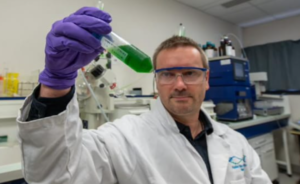 Dr. Laurent Picot, Univ. of La Rochelle, FR
Dr. Laurent Picot, Univ. of La Rochelle, FR
Laurent concluded his PhD in Microbiology in 2003, with honours and jury congratulations at the University of Rouen (France), working on the Thesis “In vitro study of the cytotoxicity of Pseudomonas fluorescens on neurons and glial cells”. In 2013, he gained the Professoral Habilitation (HDR) in Biochemistry working on “Natural molecules from marine and terrestrial biomasses: Extraction, purification, synthesis, pharmacomodulation and demonstration of pharmacological activities” at the La Rochelle University, France. Today he is assistant professor out of grade in Biochemistry and Molecular Biology at the Dept. of Biotechnology of the University of La Rochelle. His teaching activities include Pharrmacology, Immunology, Marine Biotechnology, Marine Pharmacology, Cell biology, Microbiology and Cancerology. Prof. Picot is involved in research projects focused on Marine Biochemistry and Biotechnology, Marine Pharmacology, Marine Microbiology, Immunology, Pharmacology, Cell and Molecular Biology, Microalgae, Seaweeds, Pigments, heterocycles, Natural Products, Terrestrial and Marine Pharmacognosy. The scientific contribution of his research includes 1 French patent (Microalgae pigments for phototherapy), 73 publications in international peer-reviewed journals (Biotechnology, Phycology, Biochemistry, Medicinal Chemistry, Pharmacology, Immunology and Bacteriology, Marine drugs), 5 book chapters, 52 international conferences, 42 posters at international conferences. In addition, he is reviewer for Nature Microbiology, Marine Drugs, Microalgae Biotechnology, Process Biochemistry, Médecine/Sciences, The Journal of Food Chemistry, The Journal of Food Biochemistry, Gut pathogens, The Journal of Agricultural and Food Chemistry. Coordinator of the Franco-Brazilian network on Natural products https://fb2np.recherche.univ-lr.fr/ and member of several international networks in natural products, chemistry, pharmacology (including Interreg Enhance Microalgae consortium).
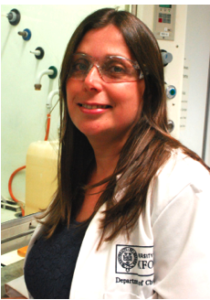 Dr. Angela Russel, University f Oxford, UK
Dr. Angela Russel, University f Oxford, UK
Angela gained her MedChem degree from the University of Oxford in 2000 and her DPhil in Organic Chemistry in 2004. In 2007 she was awarded a Research Councils’ UK Fellowship in Medicinal Chemistry jointly between the Departments of Chemistry and Pharmacology in Oxford. In 2018 she became Professor of Medicinal Chemistry. Her research interests are centered around the discovery of new molecules and mechanisms to manipulate cell fate and to translate them into therapeutic agents, particularly for degenerative diseases. She co-founded the Oxford spin-out MuOx Ltd, (now part of Summit Therapeutics plc), and co-founded OxStem Ltd in 2016. In 2016, she was named as a ‘Rising Star’ in the BioBeat 50 Movers and Shakers in BioBusiness report, celebrating 50 outstanding women entrepreneurs and business leaders who are recognized for their contributions to global health innovation. In 2020 she was awarded a Harrington UK Rare Disease Scholarship in recognition of her work on developing a therapy for Duchenne Muscular Dystrophy. In 2018 she joined the Editorial Board of Tetrahedron and in January 2021 was appointed as Editor-in-Chief of Bioorganic and Medicinal Chemistry.
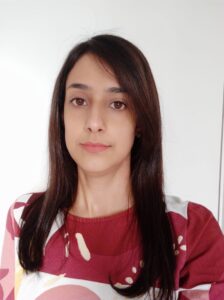 Dr. Júlia Lammoglia Monteiro, EUROFARMA, Brazil
Dr. Júlia Lammoglia Monteiro, EUROFARMA, Brazil
She received her B.S. in Chemistry from the Federal University of São Carlos, Brazil, and PhD degree in Organic/Synthetic Chemistry from the same university. During her PhD, she worked with Professor Oliver Kappe at University of Graz, Austria, re-designing organic reactions under continuous flow set-ups and developing safer reaction conditions for hazardous chemicals. After PhD, she joined a multidisciplinary drug discovery team at University of Nottingham, UK, where she spent one year as a Postdoctoral Research Fellow in a collaboration between LNBio-CNPEM, Brazil, and Barrie Kellan’s group. In 2018, she returned to Brazil to work with Eurofarma focused on neglected diseases as a Postdoctoral Research Fellow in Luiz Carlos Dias’ lab at UNICAMP, Brazil. She is currently the head of Medicinal Chemistry in the Drug Discovery unit at Eurofarma Laboratorios S/A, one of the biggest pharmaceutical companies in Brazil. Our focus is to develop new drugs for unmet needs related to anti-infectives, neglected diseases, CNS and pain.
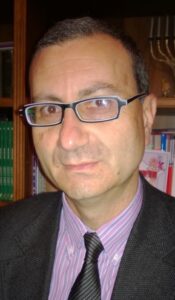 Antonello Mai, University of Rome, Italy
Antonello Mai, University of Rome, Italy
Antonello Mai graduated in Pharmacy in 1984 at the Faculty of Pharmacy of the University of Rome “La Sapienza” with 110/110 cum laude. In June 1992, he obtained the title of PhD in Pharmaceutical Sciences by discussing a thesis entitled “Research on new polycyclic benzodiazepines active on the Central Nervous System”, supervisor the Prof. Marino Artico. In 1998, he was appointed Associate Professor of Medicinal Chemistry at the same University. In 2011, Prof. Mai was appointed Full Professor of Medicinal Chemistry at the Faculty of Pharmacy and Medicine, Sapienza University of Rome. Antonello Mai is Chair Editor of “ChemMedChem” and Associate Editor of “Clinical Epigenetics” and “Journal of Enzyme Inhibition and Medicinal Chemistry “. From 2004 to 2009 Prof. Mai was a member of the Executive Committee of the Pharmaceutical Chemistry Division of the SCI. From 2009 to 2014, he was a member of the Scientific Committee of the European School of Medicinal Chemistry (ESMEC). In 2015 he was a member of the Executive Committee of the European Federation of Medicinal Chemistry (EFMC). From 2012 to 2018, Prof. Mai was the Coordinator of the Doctorate in Pharmaceutical Sciences, belonging to the Doctoral School in Biology and Molecular Medicine (BEMM), in Sapienza University of Rome. From 2013 to 2019, Prof. Mai was the President of the Master’s Degree Course in Medicinal Chemistry and Technology, Faculty of Pharmacy and Medicine, Sapienza University of Rome. Since 2014, Prof. Mai is a member of the Investigation Commission for Research Doctorates of Sapienza University of Rome, which ensures the quality of Sapienza Research Doctorates by preparing them ad hoc for approval by the National Agency for the Evaluation of University and Research (ANVUR). Since 2015 Prof. Mai is System Expert for ANVUR, and since 2019 he is a member of the Quality Team of Sapienza University of Rome. The research activity of prof. Antonello Mai, expressed in 345 publications, 8 patents, 6 book chapters and over 400 communications at conferences, can be referred to four fundamental sectors: a) design and synthesis of small molecules as modulators of epigenetic targets involved in the control of gene transcription (HDACs, HATs, SIRTs, HMTs, HDMs, DNMT). Therapeutic potential in the field of oncology and neurodegenerative and muscular diseases; b) research on active substances on the nervous central system; c) research on substances with antiviral activity (specific inhibitors of HIV-1 reverse transcriptase); d) research on substances with antibacterial, antimicobacterial and antifungal activity. Last interests involve epi-polypharmacology and the use of epi-drugs in parasitic diseases.
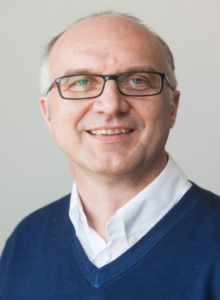 Dr. Holger Stark, Heinrich Heine University in Düsseldorf, Germany
Dr. Holger Stark, Heinrich Heine University in Düsseldorf, Germany
Holger Stark is pharmacist by education and made his PhD in Medicinal Chemistry at the Free University of Berlin, Germany, in 1991 on newly designed prodrugs (BF2.94). Then, he worked on neurotransmitter ligands, mainly at dopamine and histamine receptor subtypes for the central nervous system. In 2000 he became full professor at the Goethe University in Frankfurt, Germany and went in 2013 to the Heinrich Heine University in Düsseldorf, Germany where he has his actual position. He is founded some start-up companies on cancer therapeutics (Warburg Glycomed, PSites Pharma) and has received several prices for his successful research as well as for teaching, e.g., honorary doctorate from the University of Nis, Serbia, in 2017. On more than 350 book contributions, original papers, reviews and patents he has focused on neurotransmitter as well as on lipid signaling research. He is co-inventor of pitolisant (Wakix®, Ozawade®), the first histamine H3 receptor antagonist with market approval, and has prepared several back-up candidates in different leads for various targets. From 2004 to 2019 Holger Stark served as editor-in-chief for Archiv der Pharmazie – Chemistry in Life Sciences, one of the oldest journals on Medicinal Chemistry.
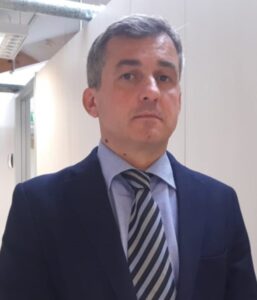 Dr. Andrea Tarozzi, University of Bologna, Italy
Dr. Andrea Tarozzi, University of Bologna, Italy
Doctor in Pharmacy and Ph.D. in Toxicology. Visiting Researcher at the Medical and Natural Sciences Research Center University of Tübingen (Germany) and Federal University of Alfenas (Brazil), Visiting Professor at Federal University of Goias (Brazil). He is currently Full Professor of Pharmacology and Toxicology at the University of Bologna. His scientific activity is documented by more 80 papers in peer reviewed journals. At present the main topics of his research is the investigation of the neuroprotective potential of old and new drugs, and natural compounds in in vitro and in vivo models. Member of Italian Society of Toxicology and Italian Society of Pharmacology.
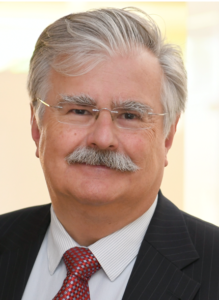 Prof. Stefan Laufer
Prof. Stefan Laufer
University of Tuebingen, Germany
Stefan Laufer is Professor and Chairman for Pharmaceutical/Medicinal Chemistry at Tuebingen University. He received his degrees from Regensburg University. After 10 years in Pharmaceutical Industry, he joined in 1999 Tuebingen University as Chairman Pharm./Med. Chemistry. His research interests are anti-inflammatory and cancer drug discovery with various eicosanoid (COX-1,2,3, LOXs, mPGES1, cPLA2) and protein kinase targets (e.g. p38, JAKs, JNKs, CK1d, mtEGRFs, BTK, ATM, AurKa). Three compounds from his lab entered clinical development phases and other four compounds made it to first into man studies. Prof. Laufer chairs the ICEPHA (Interfaculty Center for Pharmacogenomics and Drug Research) and TüCADD, Tuebingen Center for Academic Drug Discovery and is co-founder of two start-up companies. As part of this work, a proprietary kinase inhibitor collection is established (TüKIC, 10.000 cpds, >1 Mio data points). He is associate editor of the ACS Journal of Medicinal Chemistry, authored more than 500 publications, 15 books/book chapters and is inventor in 43 patent families with >347 national applications.
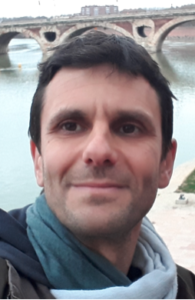 Prof. Raphael Grougnet, Paris Cité University, France
Prof. Raphael Grougnet, Paris Cité University, France
Raphael Grougnet obtained a degree in Pharmacy (2000) and M.Sc. degree in Medicinal and Biological Sciences at the Paris Descartes University, France (2000), where he performed a Ph.D. in Pharmacy (2006) under the supervision of Prof. F. Tillequin and S. Mitakou (University of Athens, Greece). Since 2007, Prof. Grougnet is Associate professor at the laboratory of Pharmacognosy, in the Faculty of Pharmacy at the University Paris Descartes, France, where he acts in the teaching fields of pharmacognosy, chemical ecology, mycology, botany, and spectroscopy. His research interests includes phytochemistry and natural products chemistry, structural determination, NMR, the extraction, fractionation and isolation by the implementation of techniques with low environmental impact (Centrifugal Partition Chromatography (CPC), and molecular adsorption resin (XAD)), in addition to the development and management of chemical libraries of natural and semisynthetic compounds (polymethoxyflavones; cycloartane, Seco-cycloartane, and dammarane triterpenes, sesquiterpene lactones, etc). He has authored more than 54 papers in International Journals, and since 2014 is a Member of the Office of International Relations of the Faculty of Pharmacy, being co-responsible for cooperation agreements between the Faculties of Pharmacy of the Paris Descartes University and the University of Sao Paulo (Ribeirao Preto, Brazil), and the University of Patagonia San Juan Bosco (Comodoro Rivadavia, Argentina). Since 2019, Prof. Grougnet is also a member of the UMR CNRS 8038 board, vice-responsible for the chemistry initiation research program (UMR 2) « Drug structure and conception» and Member of the FB2NP (Franco-Brazilian Network on Natural Products).
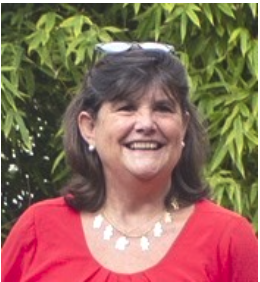 Prof. Ana Martinez, Center for Biological Research, Spain
Prof. Ana Martinez, Center for Biological Research, Spain
Ana Martinez is a researcher and professor at the Center for Biological Research (CIB) of the Spanish National Research Council (CSIC) in Barcelona, Spain. Since more than 30 years ago, her interest is focused on neurodegenerative disorders, leading numerous research projects on the medicinal chemistry and rational drug design of new drugs for Alzheimer’s and Parkinson’s disease, amyotrophic lateral sclerosis, spinal cord trauma, and multiple sclerosis, being in close contact with biopharmaceutical companies for technology transfer. She was R&D Director of NeuroPharma (2002-2008) where two of her research projects reached clinical trials as disease-modifying agents for Alzheimer’s disease. In 2008, she returned to her academic laboratory where several projects have been developed in a private-public environment. Author of more than 300 scientific publications, more than 30 active patents in the field, supervisor of dozens of students (national and international), and editor of several books. She acts as a scientific advisory board member for several SMEs in the biotech field and she is the founder of the spin-off ANKAR PHARMA, which goal is to fill the gap between basic drug discovery research and clinical trials for neurodegenerative diseases.
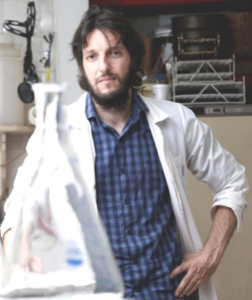 Prof. Alan Talevi, University of La Plata, Argentina
Prof. Alan Talevi, University of La Plata, Argentina
Prof. Alan Talevi was born in Buenos Aires, 1980. He obtained his Pharmacy degree in 2004 and completed his Ph.D. studies in 2007, both at the University of La Plata (UNLP, Argentina). Among other recognitions, he was granted the award for the best Ph.D. thesis on Computational Chemistry from the Argentinean Chemical Society (2008), a Pacifichem Young Scholar Award (USA, 2010), and the Award for Scientific and Technological Production from UNLP (2016). Since 2010, he holds a permanent position at the Argentinean Council of Scientific and Technical Research (CONICET), where he currently occupies an Independent Researcher position, and since 2012 he is the professor in charge of the Biopharmacy/Pharmacokinetics course at the Faculty of Exact Sciences, UNLP. Since 2014 he is a professor of the Master in Medicinal Plants at the UNLP, and since 2018 he is an invited professor of the Medical Molecular Biology (University of Buenos Aires). In 2021 he acted as an invited professor at the University of Salamanca (Spain). He has published over 80 articles in periodicals and more than 80 book chapters/entries, mostly in the fields of machine learning, drug discovery, and biopharmacy. In 2018 he became the Head of the Laboratory of Bioactive Research and Development (LIDeB, UNLP). Responsible for a bioinformatics node of a Marie Curie RISE (Research and Innovation Staff Exchange) H2020e (REPEAT project) and technical responsible in Argentina for the T2020-154 project, subsidized by the Global Health Innovative Technology Fund.
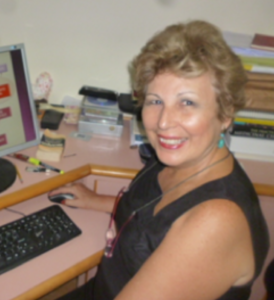 Prof. Elizabeth Igne Ferreira, Uiversity of São Paulo, Brazil
Prof. Elizabeth Igne Ferreira, Uiversity of São Paulo, Brazil
Prof. Elizabeth holds a bachelor’s degree in Pharmacy and Biochemistry from the University of São Paulo (1972), a master’s degree in Biochemical-Pharmaceutical Technology from the University of São Paulo (1979) and a Ph.D. in Organic Chemistry from the University of São Paulo (1987). She has been a faculty member at the School of Pharmaceutical Sciences, USP, since April 1974. In 1990, she did a short post-doctoral internship in molecular modeling at the College of Pharmacy, University of Illinois at Chicago, supervised by Prof. Anton J. Hopfinger and with an IDB grant. She is a full professor at the Faculty of Pharmaceutical Sciences, University of São Paulo, since 2001. She works in the area of Pharmaceutical Chemistry, in the design of new drugs for neglected diseases, especially antimalarials, antichagasic, leishmanicidal and potential tuberculostatics, using the processes of latentiation and rational planning. She has graduated, so far, 21 masters, 22 Ph.D., supervised 12 post-docs and an expressive number of undergraduate internships. She coordinated the Graduate Program in Pharmaceuticals and Medicines from 2002 to September 2014 and was Head of the Pharmacy Department of FCF-USP from 1996 to 2000 and, in a new mandate, from 2014 to 2020. In 2012, She was awarded as Senior Researcher at the 6th Brazilian Symposium on Medicinal Chemistry. She was a member of the Expert Committee of Nomenclature and Labeling of the United States Pharmacopeia, from 2015 to 2020.
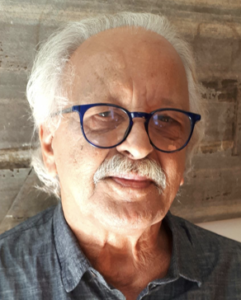 Prof. Paulo R. R. Costa, Inst. of Res. in Natural Products, Federal Univ. of Rio de Janeiro, Brazil
Prof. Paulo R. R. Costa, Inst. of Res. in Natural Products, Federal Univ. of Rio de Janeiro, Brazil
Prof. Paulo Costa Graduated in Pharmacy at the Federal University of Rio de Janeiro (UFRJ) in 1972, acting as Assistant Professor and researcher at the Institute of Research in Natural Products (IPPN-UFRJ) from 1975 to 1983, Adjunct Professor at the same Institute from 1983 to 1996 and becoming Full Professor of Organic Chemistry (IPPN-UFRJ) since 1996. Prof. Costa performed Pos-doc stages at the Université Joseph Fourrier in 1984 (Dr. Andrew E. Greene, Grenoble, France) and at the École Supérieure de Physique et Chimie in 1988 (Prof. Jean d’Angelo, Paris, France). In addition, Prof. Costa was Visiting Professor at the Federal University of Santa Catarina in 2002 (Brazil, Prof. Faruk Nome), and the Institute of Organic Synthesis in 2011 (Prof. Carmen Nájera and Prof. José Sansano, Alicante, Spain). His areas of research interest include the synthesis of natural products, asymmetric catalysis, and medicinal chemistry.
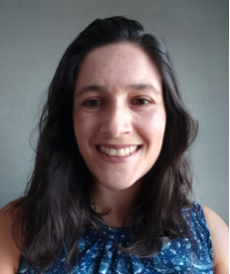 Prof. Rafaela Salgado Ferreira, Federal University of Minas Gerais, Brazil
Prof. Rafaela Salgado Ferreira, Federal University of Minas Gerais, Brazil
Rafaela Salgado Ferreira is a professor at the Biochemistry and Immunology Department at the Federal University of Minas Gerais since 2011. Rafaela graduated in Pharmacy in 2005 at Federal University of Minas Gerais and got her Ph.D. in Chemistry and Chemical Biology at the University of California San Francisco (2010), mentored by Brian K. Shoichet and James H. McKerrow. Then she did a postdoc at the University of São Paulo, supervised by Adriano Andricopulo (2010-2011). In 2018, Rafaela was a visiting researcher at the Centre de Biochimie Structurale (Montpellier, France). Her research interests and experience are focused on drug design, enzymology, and structural biology, especially towards the development of parasitic cysteine protease inhibitors. Her awards include the ‘L’Oréal-UNESCO-ABC For Women in Science 2017 – Category Chemistry’ , ‘L’Oréal-UNESCO For Women in Science International Rising Talent 2018’, and “SBQ-ACS Women in Chemistry Award 2021, Category Emerging Leader”.
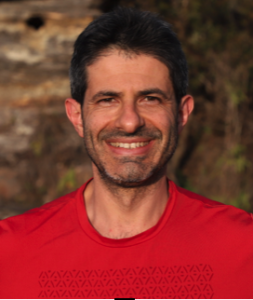 Dr. Fabrício A. Moreira, Federal Univ. of Minas Gerais, Brazil
Dr. Fabrício A. Moreira, Federal Univ. of Minas Gerais, Brazil
Dr. Moreira obtained his degree in Pharmacy (2000), from Federal University of Minas Gerais (UFMG), and M.Sc. (2002) and PhD (2006) degrees in Pharmacology, from the University of Sao Paulo. From 2006 to 2007, Dr. Moreira worked as post-doctoral fellow of the Alexander von Humboldt Foundation at the University of Mainz, Germany. After that, he experienced two opportunities as visiting professor at the Center for Regenerative Therapies – Dresden (2008) and Visiting Researcher at the max Planck Institute of Psychiatry, Munich-Germany from 2008 to 2011. Since August 2008, he acts as Pharmacology professor at the Department of Pharmacology of the Biological Sciences Institute (UFMG). Currently, he is Associate Professor of Pharmacology at the Federal University of Minas Gerais (UFMG). His main research interests include the pharmacology of the endocannabinoid system, drug addiction and dopaminergic pharmacology.


 Michael J. Sofia, Ph.D.
Michael J. Sofia, Ph.D.